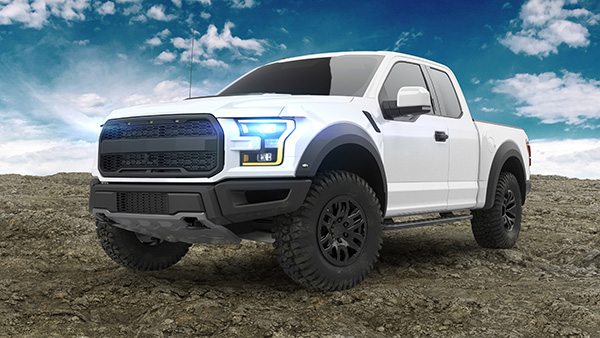
Trucks, especially those designed for heavy-duty tasks, face different challenges and require a different approach to regular upkeep than cars. Whether it’s due to the larger size, heavier load capacities, or the way they’re used, maintaining a truck involves more than just scaling up car maintenance. So, what exactly sets truck maintenance apart? Let’s explore the key differences and why keeping up with a truck’s maintenance schedule is crucial for its longevity and performance.
Trucks Are Built for Heavy-Duty Performance
The first major distinction between trucks and cars is their intended purpose. Trucks are often built for more intense tasks like hauling, towing, or off-road driving. This means they come with stronger engines, more robust suspensions, and greater load-bearing capabilities compared to standard cars.
Because of these demands, the components of a truck are subjected to much more stress and wear. For example, trucks have heavy-duty brakes and transmission systems designed to handle the added weight and strain of towing or carrying heavy loads. This requires more frequent inspections and potential replacements of these parts than a typical car would need.
Tires Take on a Bigger Role
Tires are an essential part of any vehicle, but for trucks, they play an even bigger role. Trucks are often used to haul trailers, transport equipment, or navigate rough terrain. As a result, truck tires are larger, stronger, and built to withstand more abuse. However, this also means that tire maintenance is a much more critical factor for trucks.
Tire rotation, alignment, and balancing are important for trucks to ensure even wear, extend tire life, and prevent unnecessary strain on the suspension and drivetrain. Regularly checking tire pressure is also crucial for trucks carrying heavy loads. Under-inflated tires can cause overheating, leading to tire failure, while over-inflated tires can result in reduced traction and stability—especially in off-road conditions.
Ignoring truck tire maintenance can lead to more than just worn-out tires; it can affect fuel efficiency, handling, and safety, particularly when towing or carrying large loads.
Suspension System
One major difference between truck and car maintenance is the importance of the suspension system. Trucks are often subjected to rougher roads, heavier loads, and more dynamic driving conditions than cars, meaning the suspension system takes a beating. While car suspension systems are designed for comfort and city driving, truck suspensions are engineered to handle more rugged conditions, including off-road environments and uneven terrain.
This extra stress means that truck suspensions require more frequent inspections. Bushings, control arms, and shock absorbers can wear out faster under the demands of truck driving. Keeping these parts in good condition ensures that the truck can continue to carry heavy loads without compromising safety or comfort. Drivers who regularly take their trucks off-road or use them for towing should pay particular attention to suspension maintenance.
Fluid Changes for Hardworking Engines
Trucks rely on more than just engine oil to keep everything running smoothly. Because trucks work harder, they often have additional systems, such as differentials, transfer cases (for 4x4 vehicles), and heavy-duty transmissions, all of which require regular fluid changes.
Trucks often need more frequent changes of transmission fluid, differential fluid, and even power steering fluid compared to cars, especially if the truck is used for towing or other heavy-duty work. Engine oil for trucks may also need to be changed more often, especially if the truck is used in harsh conditions like off-roading, dusty environments, or extreme temperatures.
Skipping or delaying fluid changes can result in major mechanical issues, including overheating, transmission failure, and reduced towing capacity.
The Importance of Regular Inspections
Due to the more demanding nature of truck work, regular inspections become even more critical. While cars may require annual or bi-annual check-ups, trucks—especially those used for commercial purposes or heavy-duty work—should be inspected more frequently. Key areas to focus on during a truck inspection include:
- Brake system (due to extra strain when hauling or towing)
- Suspension components
- Fluid levels and quality
- Tires and alignment
- Engine performance and air filters (particularly for trucks used in dusty or off-road environments)
Regular inspections can catch small issues before they become expensive repairs. For example, worn brake pads can wear down faster in trucks, and neglecting them can lead to damage to the rotors, adding unnecessary cost to repairs. Frequent inspections help extend the lifespan of a truck and ensure it performs at its best.
Don’t wait until your truck is showing signs of trouble—routine maintenance can save you time and money in the long run. At Premier West Gears, we provide comprehensive truck inspections and repairs to keep your vehicle ready for the road ahead. Schedule your service now!